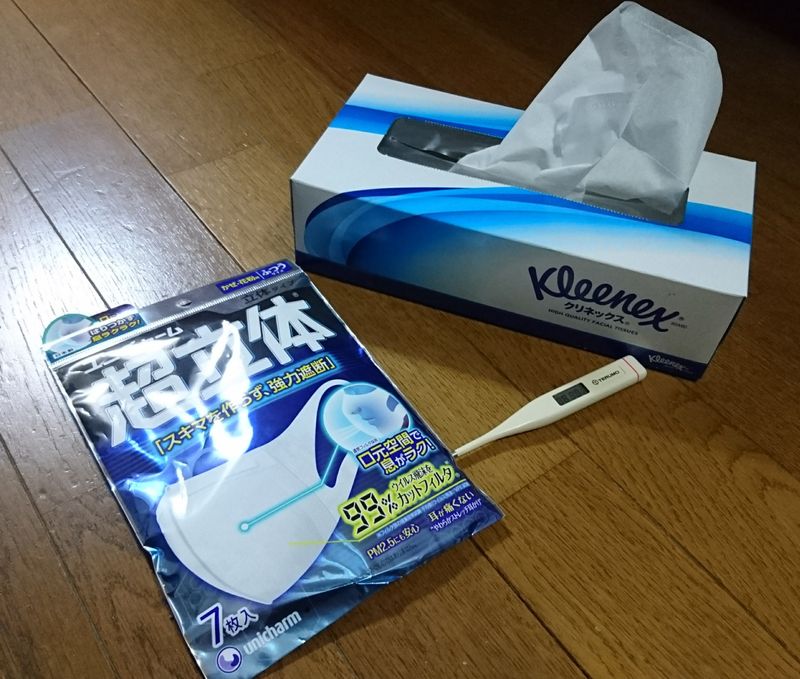Feb 19, 2018
Influenza in the Office
Influenza seems to be hitting Japan especially hard the past few weeks and my office is no exception. I work in a large, Japanese-style, open office with desk islands. The person sitting either side of my, the one diagonally across from me, the person behind him, and 2 people sitting behind me were all diagnosed with influenza at some point last week.

The first to be diagnosed went to the clinic on Tuesday before coming in to the office. He, a foreign man, didn't miss a day of work and it was not until Thursday that he happened to mention he had influenza. When the manager, a Japanese woman, heard this, she got quite irritated and immediately began to tell him he must go home right that moment. She also chastised him for continuing to come in when he has influenza. He was a bit baffled by the strength of her insistence since not long before on the same day he was being praised for his coming in while sick. She tried to explain that he should have stayed home out of consideration for those seated around him since it was influenza. He tried to explain he was busy and needed to get work done before the deadlines. They could not seem to understand each other.
This led to a tense discussion and his insisting that he was fine to stay. After all, he said, he had been on medicine for two days already, and it had been Monday when he was really at his worst. He did end up, in the end, staying, but the manager was not pleased. Ironically, she missed the next day, having she herself been diagnosed with influenza after coming in sick with what she thought was a cold much of the week.
I have found that, as long as one is wearing a mask, showing up at work sick is often seen as being a responsible worker here in Japan. However, as soon as one is diagnosed with influenza, things change. Suddenly, one must stay home 24 or 48 hours after the fever has returned to normal. This is, as far as I can tell, company policy in many companies. Even in some clinics, if it is suspected to be influenza, I have had to sit in a different waiting area apart from other patients despite wearing a mask.
I do not discount the seriousness of influenza or that it can and does prove fatal for some people. A friend lost her healthy, eight-year-old son to influenza a few years ago, so I really do understand. Even so, the level of alarm and caution in Japan does seem a bit extreme, especially in light of the fact that other serious illnesses are not afforded, near as I can tell, the same level of alarm.
My last three employers have had variations of the 24 hour/48 hour rule. The last time I had influenza, I ended up missing seven work days because, as I recovered from the flu, I developed bronchitis and could not get the required number of hours fever-free. I could have lied, I suppose, but it was pretty obvious I was sick. I also was not aware of this rule at one employer and was sent home once from that company after returning to work prematurely.
The other thing to keep in mind is that some employers will require a doctor's note to either excuse the absence or to clear you to return. The same note will do both, in my experience. I have been required to have this note to return to work in the past at a couple places I worked. These are not free. They can cost up to ¥5,000, but that was much cheaper than the penalty that I would have had at one place had I not brought it in. You need to ask the doctor to write it at the time of your visit. Thankfully my current employer does not require this.
If you do happen to be diagnosed with influenza, it is a good idea to stay home and let your employer know that you have it. Also, I suggest that you ask what the policy is in regards to when you can return since companies do seem to have different rules.
I am a hiker, walker, and abundant photo-taker. After spending my first many years in Japan in Tochigi, I relocated to Tokyo at the end of 2012. I love visiting the numerous temples, shrines, castles, and former castles that can be found in the mountains, rural areas, and tucked away within cities.



0 Comments